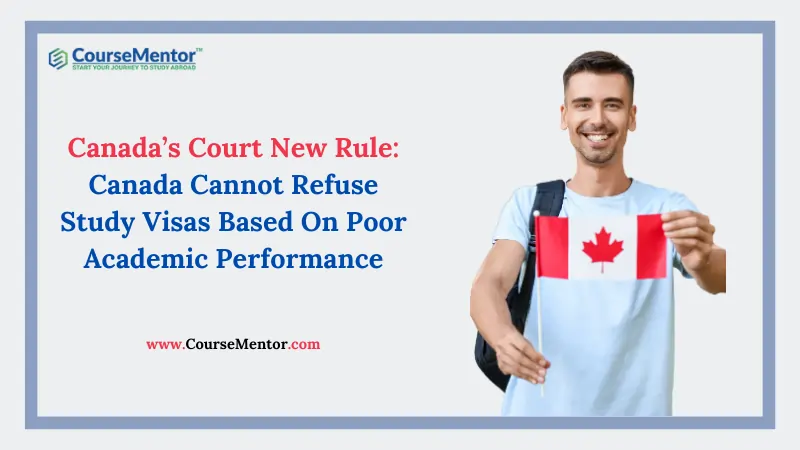Canada cannot refuse study visas based on poor academic performance: The Federal Court of Canada recently favored an Indian applicant whose study permit application had been rejected due to concerns about past academic performance and perceived inconsistency in educational goals.
This rule emphasizes the need for fairness and justification in immigration decisions. The Indian applicant had applied for a full-time graduate program at Niagara College in Toronto, specifically the International Business Management program.
Despite being accepted by the college, the study permit application was refused. The immigration officer mentioned two main reasons for the refusal: low previous academic performance and inconsistent educational goals.
They pointed to the applicant’s previous academic performance, which they believed was not strong enough. However, the court found that the officer’s decision lacked transparency and justification.
The court highlighted that a person’s past academic performance in one area should not automatically prevent them from succeeding in a different field of study. Also, various factors influence academic success, and a broader assessment is needed.
The court also referred to a previous case, Patel v Canada (Citizenship and Immigration), recognizing that a person can complete a program successfully without excelling.
Therefore, it is important to evaluate an applicant’s potential for success in their chosen program based on their qualifications and the program’s requirements rather than making a broad assumption based only on past academic performance.
Also, the court noted that Niagara College had already determined that the applicant met the admission criteria for the International Business Management program, further supporting the applicant’s suitability for the program.
Regarding the perceived inconsistency in the applicant’s educational goals, the court found that the immigration officer did not provide sufficient details to support this claim.
The applicant had provided a letter explaining their choice of the International Business program, which the officer did not adequately address. This lack of clarity made it unclear how the officer concluded “inconsistent” educational goals.
The importance of this case is significant. It supports the idea that past academic performance should not be an absolute barrier to obtaining a study permit.
Applicants should be evaluated based on their qualifications and the program they plan to pursue. This case also highlights that applicants can choose different study programs in Canada if they provide a clear rationale.
Also, this decision underscores the importance of fairness, transparency, and a thorough evaluation process in immigration decisions.
It ensures that applicants are not unfairly denied study permits based on rigid assumptions about their academic history or educational goals.
So, it is all about Canada cannot refuse study visas based on poor academic performance.
For more information, keep visiting Course Mentor.
Source: economictimes.indiatimes.com


